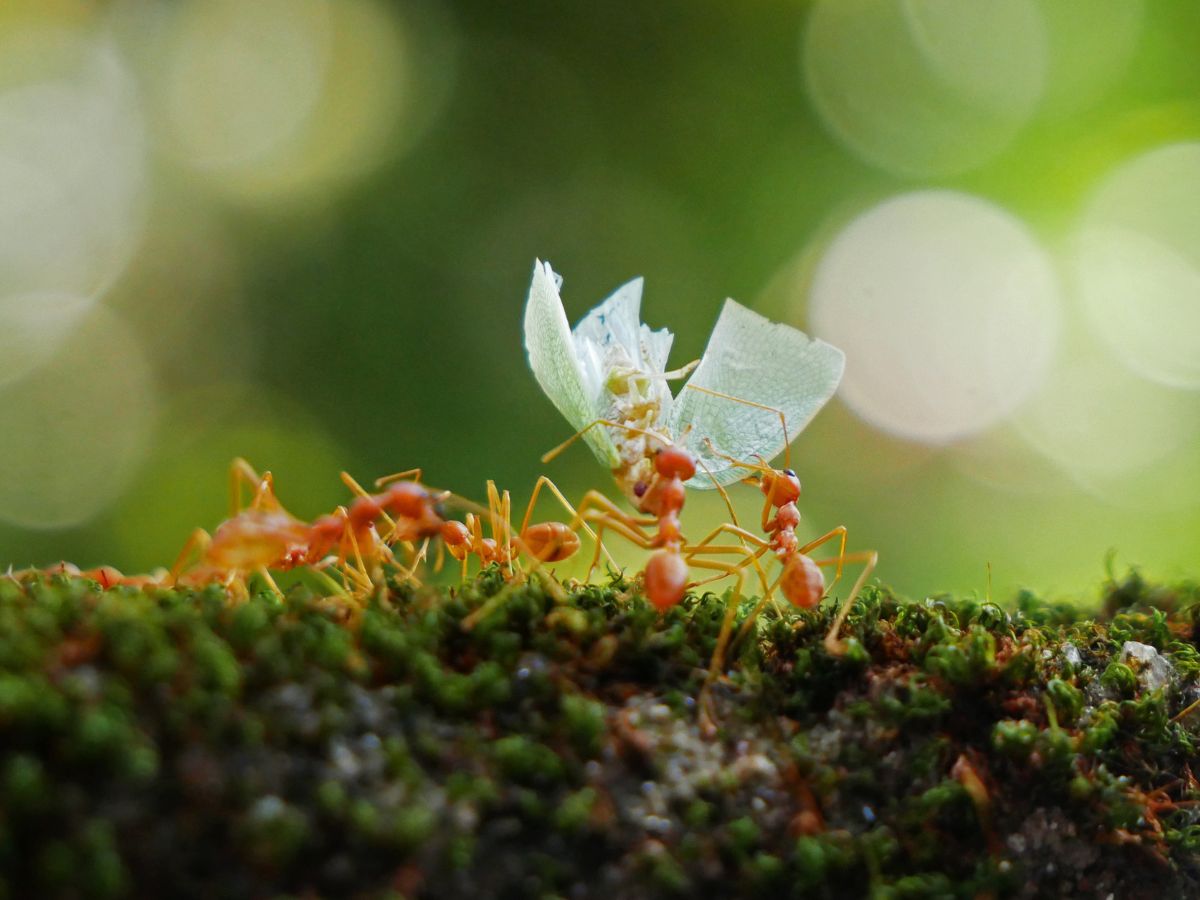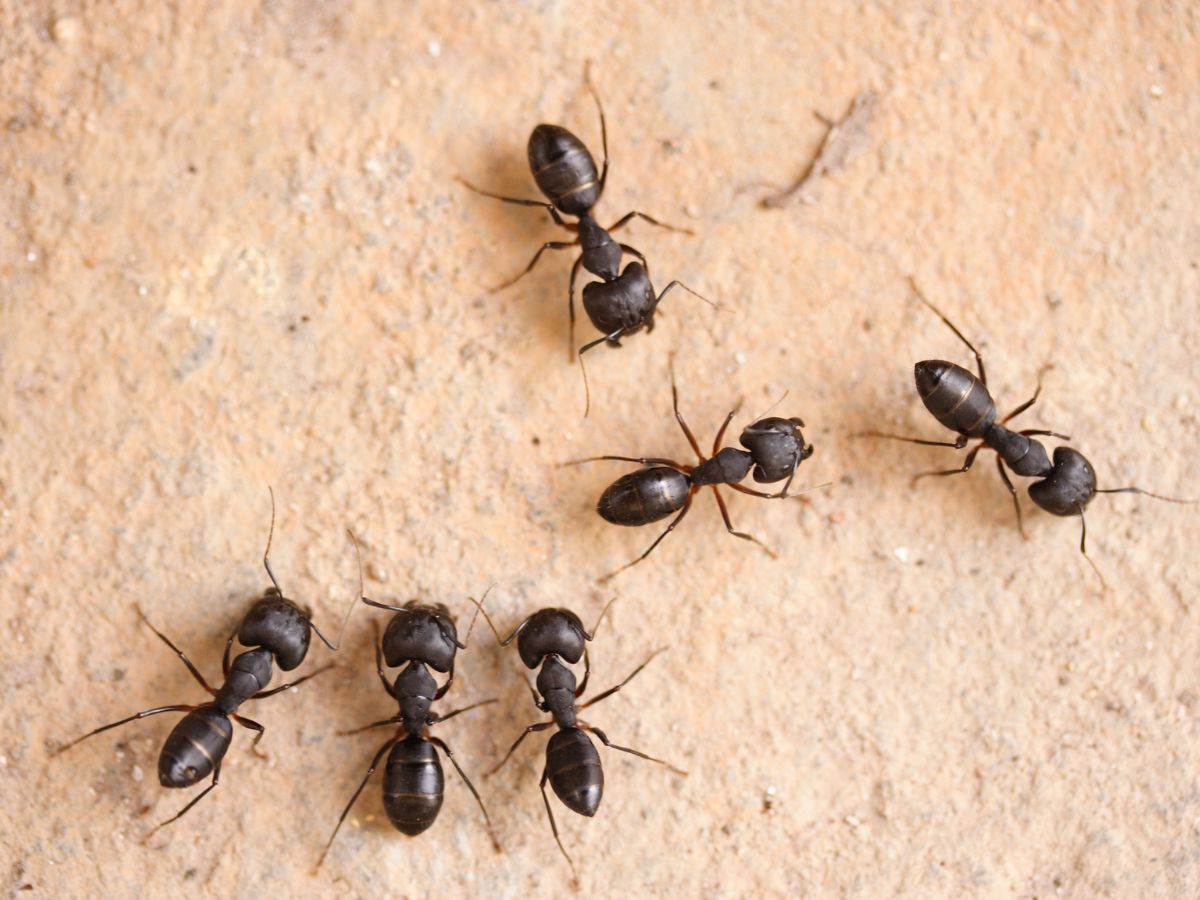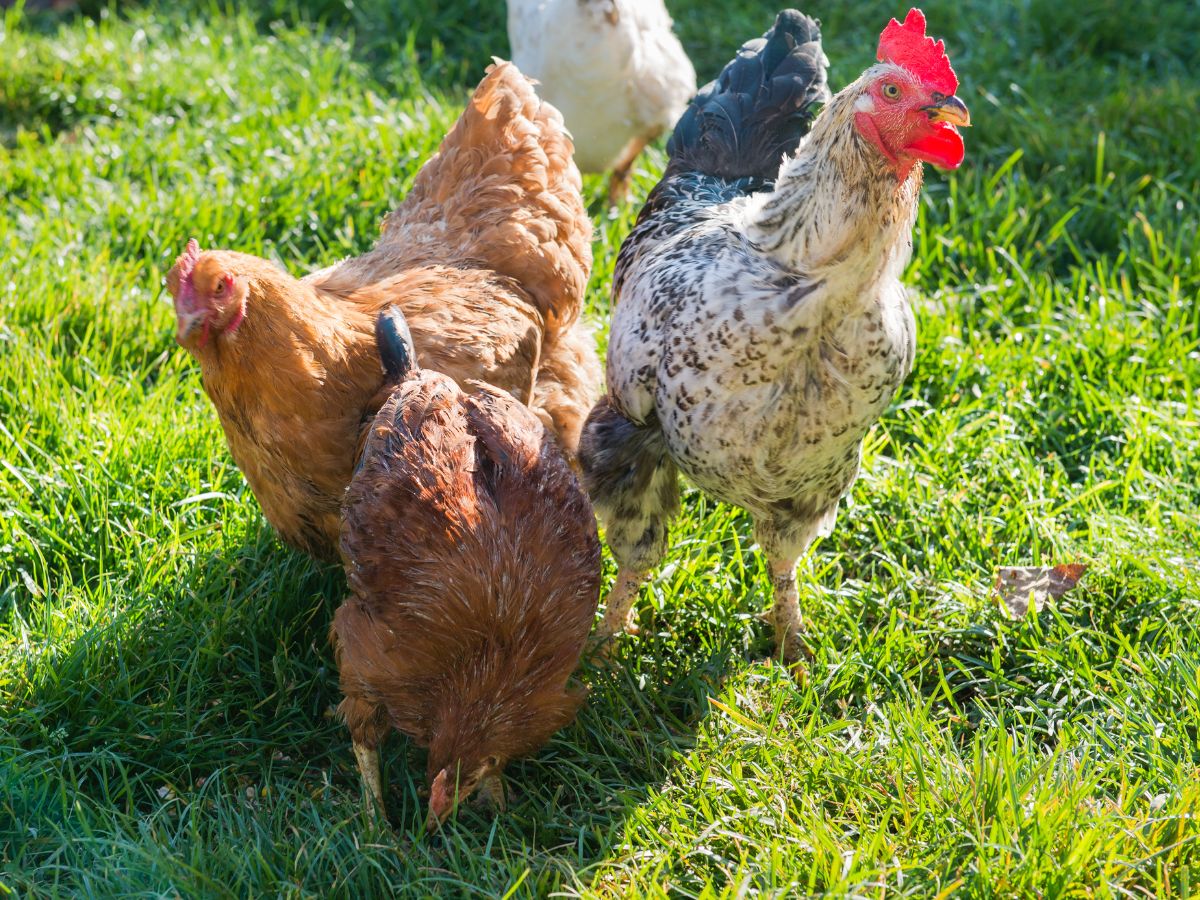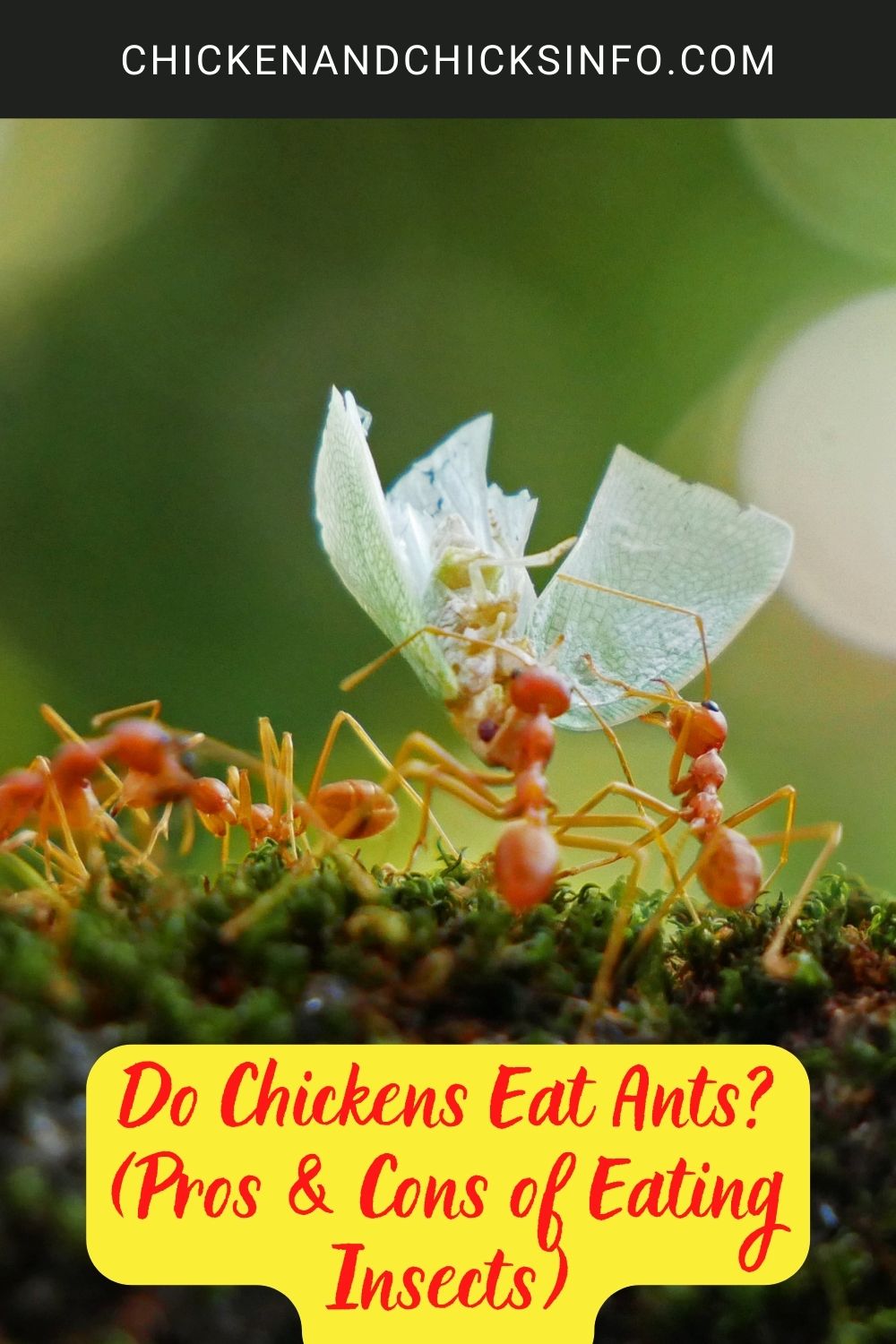
Chickens are awesome for a lot of reasons, and ridding your yard of insects and bugs is one of them. If you have ants in your yard you’re probably wondering, do chickens eat ants?
The answer is - yes.
Chickens do eat ants. It’s perfectly safe for them to eat ants and dig around in ant’s nests for eggs too. If you have an ant problem, your chickens will be more than happy to help you out.
Jump to:
Do Chickens Eat Red Ants and Fire Ants?
Fire ants are the only instance where chickens and ants can potentially be a bad mix. As can humans and fire ants!
Hopefully, you’ve never been stung by a fire ant. Because I have, and I can tell you that it actually hurts a good deal. Some people are allergic to their toxin too, although I’m not.
Most people think they bite, but they actually sting. Either way, it still hurts. The problem is that they will sting chickens too if they feel threatened by them.
They are almost always found in colonies of large numbers too. So, if an unsuspecting chicken unsettles a fire ant nest, they could be in for some serious pain.
If you have fire ants in your yard your best bet is to call pest control or deal with it yourself. These little red guys pack a nasty bit of venom that can seriously hurt or even kill a chicken in large numbers.
Do Chickens Eat Carpenter Ants?

There are several species of carpenter ants across the U.S. They are typically bigger than normal ants, most have wings, and they tend to come out in numbers in spring and fall.
These are also fine for your flock. They provide a slightly bigger snack, a bit more meat if you like. Again, mixed results from chickens, some can’t seem to get enough of these little guys. Some will just ignore them.
What Insects and Bugs Are Fine for Chickens?
Chickens love to forage for food, and yards are full of insects, bugs, and other tasty morsels. Which explains one of the reasons why free-range chickens are so happy and healthy.
Not all insects are fine though, and there is a risk to chickens of picking up parasites and bacterias from eating bugs that are hosting parasites.
Some of the insects they will happily devour include; caterpillars, grasshoppers, ticks, earwigs, spiders, termites, millipedes, and worms, to mention just a few!
Many insects live either on top of the soil or just underneath, making it easy for chickens to find them and gobble them up. They naturally and instinctually scratch and peck at the dirt, as I’m sure you’ve observed.
The Dangers of Eating Bugs

The main issue with eating bugs is that they might have internal parasites that can be passed on to your chickens.
Worms are one of the most commonly passed parasites that cause chickens’ problems. There are a lot of different types of worms, but tapeworms, roundworms, and cecal worms are the main culprits.
Here is a brief overview of these worms:
Tapeworms
Tapeworms are horrible looking little worms. They have made up of several segments, are typically white, and they can range in size from barely visible to the naked eye to around 12” long.
Different species of tapeworms live in different areas of a chicken’s digestive tract. It can be tricky ridding your flock of all tapeworms and their eggs, veterinary advice is your best bet.
Roundworms
Roundworms are one of the more common parasites that infest poultry. There are two main types; large and small roundworms.
Both are potentially very damaging to a bird if left untreated. They set up home inside a chicken’s digestive tract and will interfere with egg production, sap a chicken’ energy, and will gradually cause infections or degrading of their intestines.
There are some effective medications available, it’s best to discuss your options with a vet.
Cecal Worms
Cecal worms inhabit the cecal pouches in chickens. These pouches are located at the end of the small intestines.
These worms don’t cause a lot of harm to chickens by just inhabiting them. They can, however, transmit disease, and are known to aid blackhead disease.
There are some treatments that are very effective at killing cecal worms. Your vet will be able to point you in the right direction.
If you want to learn more about an effective worming treatment called Valbazen. Read this article on how to use Valbazen for chickens with worms.
In Summary
I hope this article has helped explain the pros and cons of your chickens roaming your yard and eating insects.
They can be a vacuum for annoying little insects like ants, yes. It’s good for them to mix up their diet with some live insects and bugs.
As long as you stay on top of proactively worming your flock and addressing any issues if you notice them arise, it’s going to be a win-win for you and your chicken.





